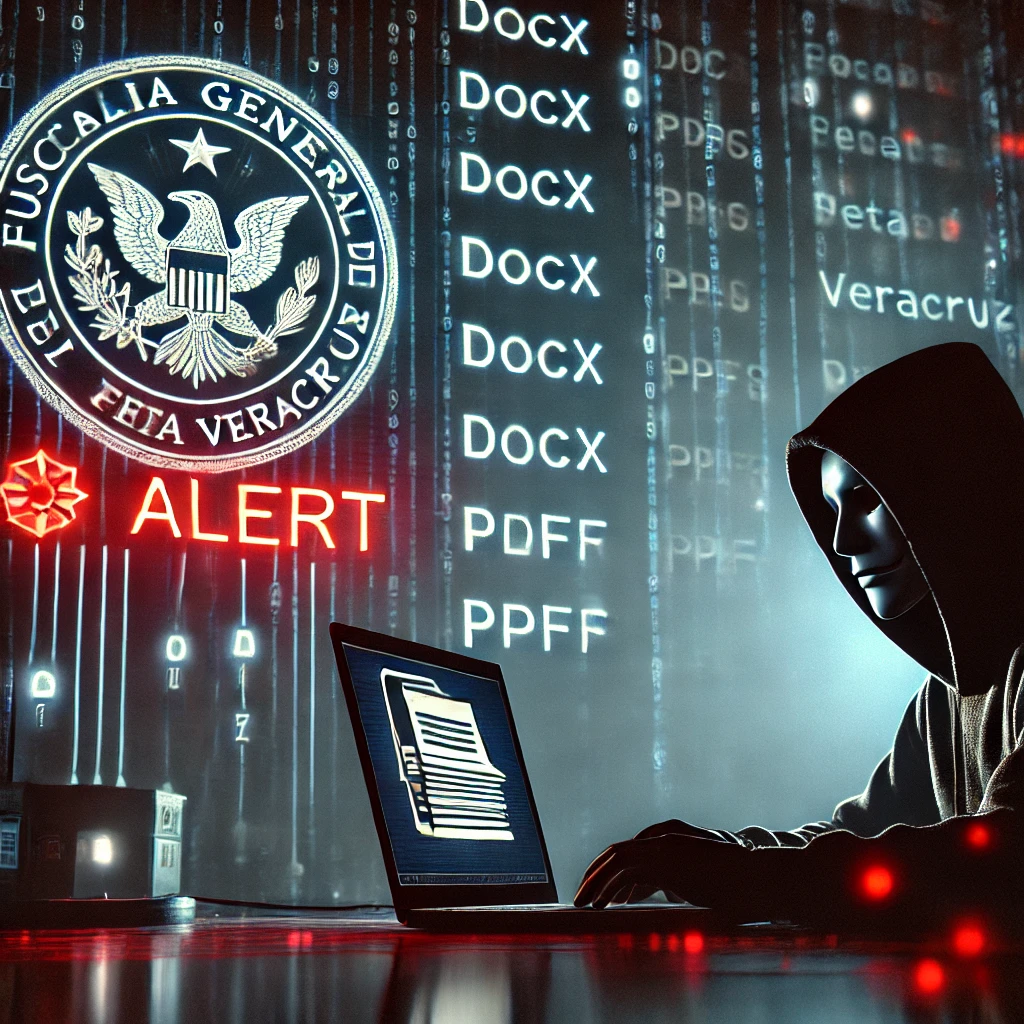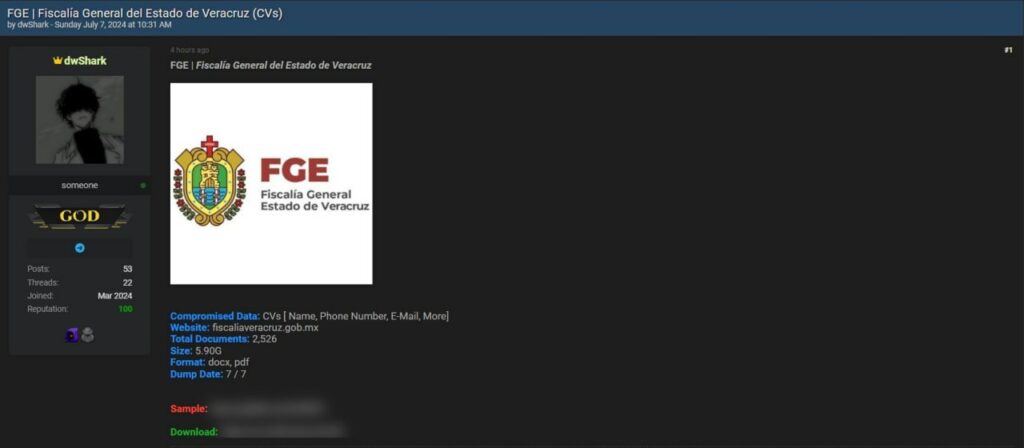
In an era where cybersecurity has become crucial for protecting sensitive data, a recent leak has revealed an alleged security breach at the Fiscalía General del Estado de Veracruz. A malicious actor known as “dwShark” claimed to have stolen the database of the Office of the Attorney General of the State of Veracruz, exposing sensitive data such as names, phone numbers, emails, and other personal information.

The Fiscalía General del Estado de Veracruz (FGE Veracruz) is the entity responsible for administering criminal justice in the state of Veracruz, Mexico. This institution plays a crucial role in maintaining public order, prosecuting crimes, and protecting citizens’ rights.

According to reports, the compromised data includes:
The malicious actor posted the breach announcement on a dark forum, attaching a sample of the stolen data and a download link.
The data breach at the Fiscalía General del Estado de Veracruz could have serious repercussions. The stolen personal information can be used for a wide range of illicit activities, including:
At present, we cannot confirm the accuracy of the breach as the organization has not yet released an official statement on its website regarding the incident. Therefore, this article should be considered as an ‘intelligence source.’
The alleged security breach at the Fiscalía General del Estado de Veracruz highlights the critical importance of personal data protection and cybersecurity in public institutions. It is imperative that organizations adopt proactive measures to protect sensitive data and respond promptly in case of security incidents. We will continue to monitor the situation awaiting official confirmations and further developments.
Note: This article is based on intelligence information, and we cannot currently confirm the validity of the breach. The information presented should be considered unverified until official confirmation is provided.
As is our custom, we always leave room for a statement from the company should they wish to provide updates on the matter. We will be happy to publish such information with a specific article highlighting the issue.
RHC will monitor the evolution of the case to publish further news on the blog if there are substantial developments. If there are individuals informed about the facts who wish to provide information anonymously, they can use the whistleblower’s encrypted email.
Follow us on Google News to receive daily updates on cybersecurity. Contact us if you would like to report news, insights or content for publication.
